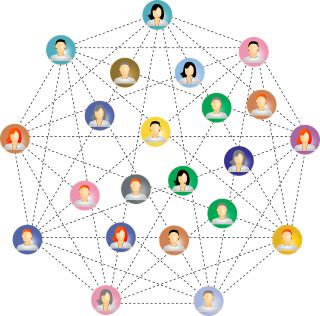Myers-Briggs
The Persistent Appeal of the Myers-Briggs Personality Test
A case of "close enough."
Updated December 11, 2023 Reviewed by Jessica Schrader
Key points
- The Myers-Briggs test is a well-known and far-reaching personality test.
- Its advocates claim that the test can help eliminate conflict and encourage self-reflection.
- Problems can arise with overconfident use of the MBTI.
This post was co-authored by Jenna Zorik and Robert T Muller, Ph.D.
Myers-Briggs test (MBTI) is one of the most well-known and far-reaching personality tests. At a glance, you can easily understand its popularity. When I first took the test about a year ago and was assigned INTJ or the “Architect,” a personality type deemed one of the “rarest” and “most capable,” it felt quite validating: my bluntness was the “knack for seeing right through phoniness and hypocrisy” and my low desire to foster friendships was simply a search for an “intellectual match.”
MBTI’s popularity spans the likes of books, podcasts, and numerous websites, and is often marketed as a viable tool for career exploration and team development. But as often is the case when it comes to a widely consumed product or popular service, a closer look at the research is warranted.

MBTI advocates claim that by dividing people into categories, the test can help eliminate conflict, improve communication and teamwork, emphasize strengths, and encourage self-reflection. Dr. Derek Chapman, associate professor at the University of Calgary whose work includes research in industrial-organizational psychology, agrees that personality tests in employment and hiring can be useful, as they can help capture a person’s “typical” ability. Chapman cautions, however, that a single personality test will not be useful across all contexts and that there is a need for the intentional use of personality testing in the workplace.
It is worth noting that even those who use the test are often aware of its limitations. In an interview with The Trauma and Mental Health Report (TMHR), Shawn Bakker, who has written about the use of psychometric tests in the workplace, explains that the MBTI was never designed to evaluate job candidates and should not be used to evaluate potential candidates for a job. This information, he says, has been clearly and consistently put out by the publisher of the MBTI and distributors around the world: “Uses of the MBTI in hiring are misplaced and not all that frequent, but when we are made aware of it happening in specific situations, we reach out to those using the tool in error. Instead, the MBTI was designed to help people learn about their preferences, not their skills.”
Bakker also comments that the MBTI strikes a good balance between being comprehensive while remaining fairly easy to use, which also serves as a likely explanation for its popularity. In contrast to Bakker, Chapman warns that the MBTI was designed by people who were not trained in psychometrics, and its user-friendly nature results in its use by many who are not properly informed.
Chapman explains that another issue arises when asking how we can assume that the MBTI, a test based on Western theories and assumptions, can apply to everyone worldwide. The overconfident use of the MBTI can result in stories like the one told by Quinisha Jackson-Wright for The New York Times, where her experience with the test exposed that MBTI screening was more about cultural fit than unique qualifications she could bring to the job.
Furthermore, Chapman and others explain that the test has very low test-retest reliability, meaning results are unstable and likely to change. To test this myself, I took the MBTI again before writing this post. As Chapman predicted, the MBTI failed the test-retest: this time I scored as INTP the “Logician,” not my prior score as INTJ.
MBTI may be offer helpful insights into one's personality, yet there are divergent views about the validity of its application in various contexts. Considering both the benefits and limitations of MBTI is advisable.


